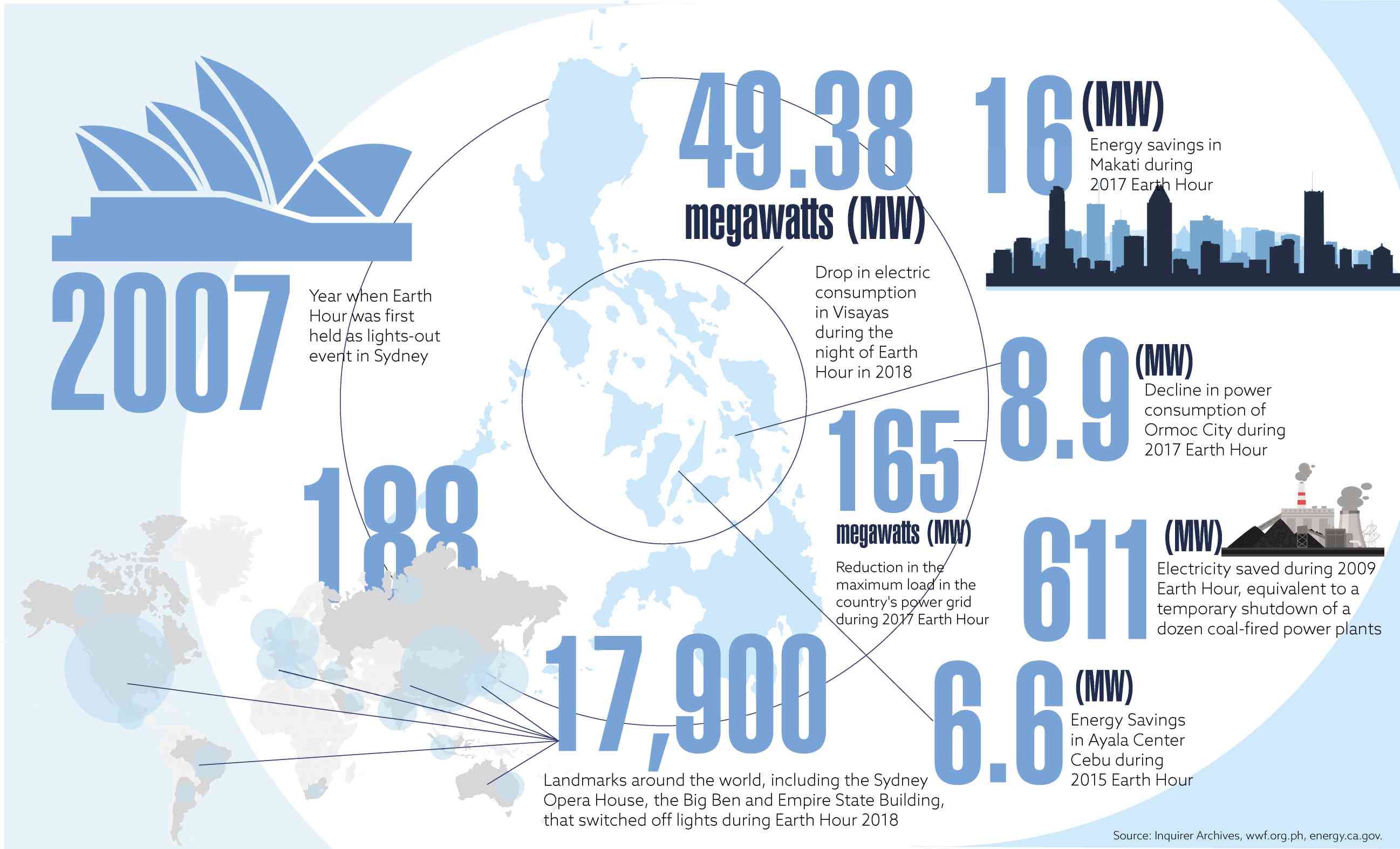Switch off for Mother earth
For one hour tonight, millions of Filipinos are expected to join the self-imposed 60-minute blackout, deemed to be the largest call for action on climate change.
The Earth Hour campaign, which is now on its 12th year, has gone a long way from the time it started in Sydney in 2007 to becoming the world’s largest grassroots movement for the environment. And today, it has further evolved to become a platform to raise awareness on the importance of biodiversity.
For instance, this year’s Earth Hour campaign in the Philippines also sheds light on the threat of plastic pollution, with WWF-Philippines saying that it hoped to “further create awareness on the dangers of single-use plastics, spark conversations, change mindsets and habits of consumers, urge businesses to operate more sustainably, and influence policy.”
Significance for PH
Hence, over the past decade, the campaign had seen the growing participation of more building owners and households in this one-hour affair, all recognizing its importance for the planet. Most of the country’s biggest malls, retail spaces and office buildings, along with residential condominiums, posh subdivisions and local neighborhoods have taken part in this yearly switch-off of nonessential lights.
Article continues after this advertisementSo far, the Earth Hour has yielded immediate, tangible benefits for the Philippines.
Article continues after this advertisementFor instance, in the 2017 Earth Hour, the country saw a 165-megawatt reduction from the power grid, while in Makati City alone, energy savings for the same year stood at 16 MW. To illustrate the significance of these savings, it is said that an estimated 750 to 1,000 homes can be powered by one megawatt of electricity.
These numbers may be marginal compared to the country’s total energy consumption of an estimated 78.3 billion kilowatt-hours a year, data from worlddata.info showed.
But still, these are especially significant for the Philippines, which was reported to be among the world’s top 10 countries most affected by extreme weather events and catastrophes in terms of fatalities and economic losses. As a country that has been reeling from the ill effects of climate change, there is no question that the Philippines should take a more proactive stance in addressing this issue. Thus, every bit helps.
Real estate contribution
Fortunately, most of the Philippine industries have already been rolling out green, sustainable measures in an effort to curb their respective carbon footprint. In real estate, there has been a more conscious effort among players to go green in terms of construction, architecture and design.
And it should do so, since the industry can play a significant role in slashing carbon emissions over the next decade.
A previous report by the World Economic Forum (WEF) stated that the real estate industry consumes over 40 percent of global energy annually; about 20 percent of total global greenhouse gas emissions originate from buildings; and that buildings use 40 percent of raw materials globally, among others.
Currently, there are players that are more active in pursuing a sustainable stance. Upscale developer Rockwell Land, for example, has made a more conscious effort to shift to renewable energy. Ayala Land, meanwhile, has long been adhering to sustainability standards that include ensuring site resilience; providing pedestrian-friendly roads and access to public transportation; and designing to maximize the natural light and air for eco-efficiency, among other efforts.
Join the rest of the country for Earth Hour 2019 by switching off nonessential lights for one hour tonight from 8:30 p.m. to 9:30 p.m.

